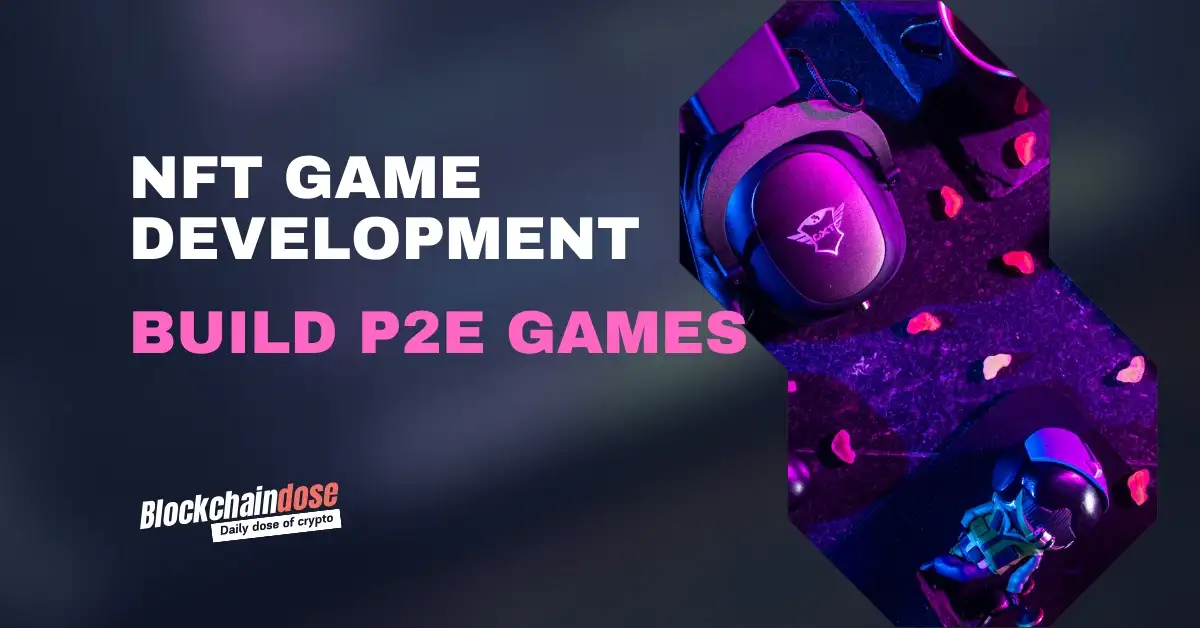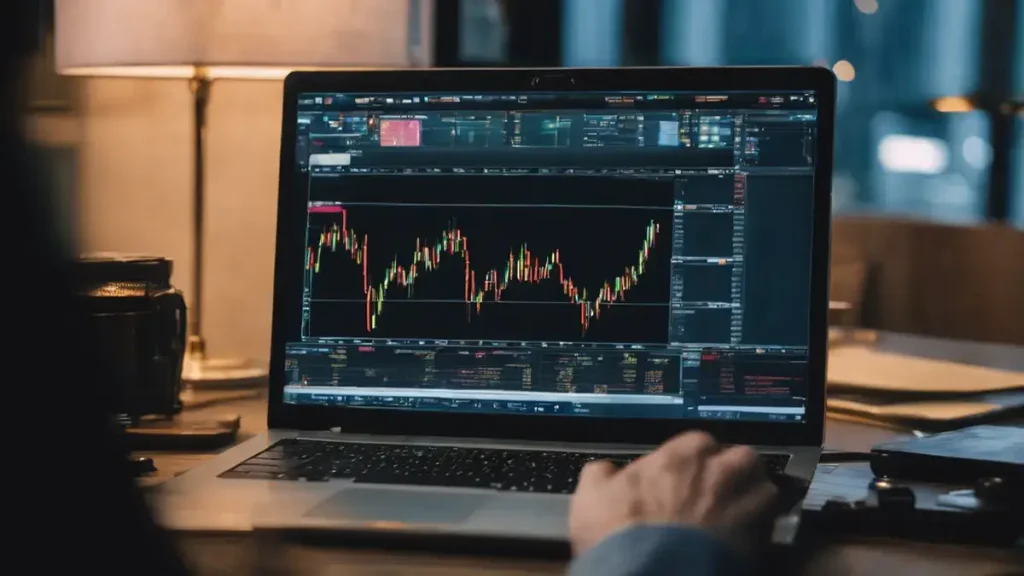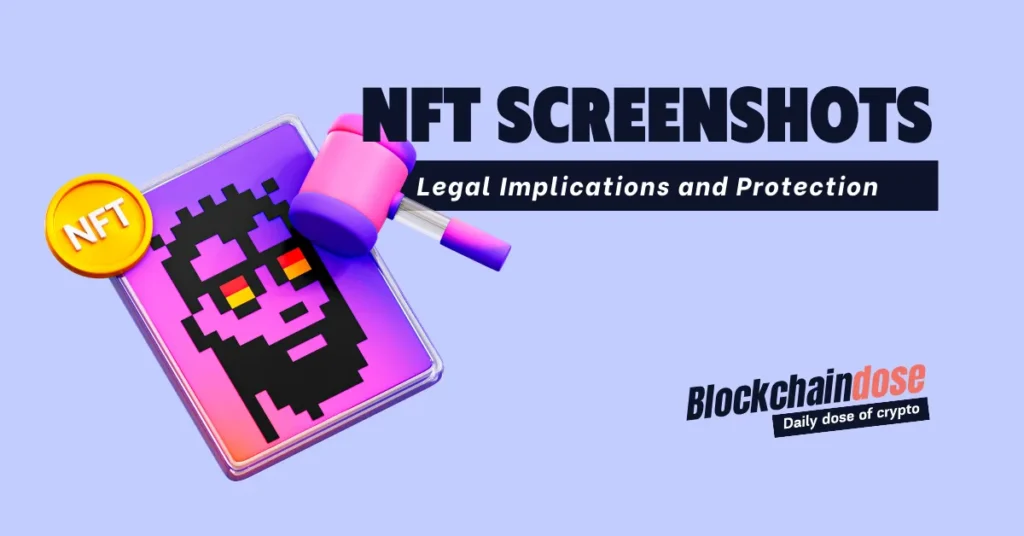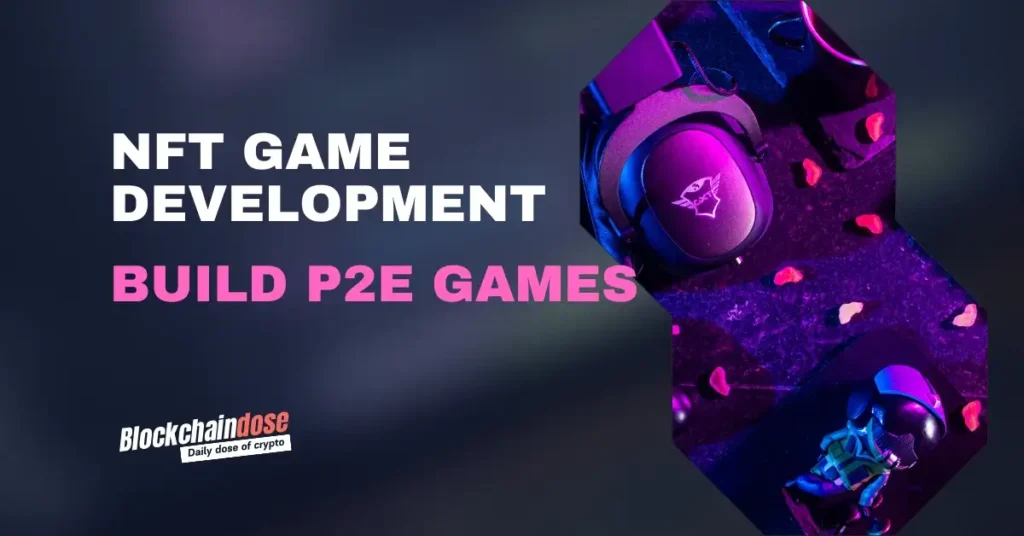The Play-to-Earn (P2E) gaming market is booming in 2025, with NFT game development at its core. Learn about the costs, best practices, and trends that can help you create a successful NFT gaming platform.
Imagine your favorite video game characters being as unique as trading cards but far cooler. That’s the power of NFT games! These digital worlds are changing how we view gaming, ownership, and even earning money while playing.
The global P2E NFT games market, valued at $755 million in 2021, is projected to reach $6.32 billion by 2031, growing at a 21.3% CAGR. In NFT games, players can earn cryptocurrency or valuable NFTs by completing in-game tasks, battling opponents, or simply exploring. The P2E model turns gaming into a potential income stream.
What Are NFT Games?
NFT games are digital games where players can collect, trade, and own unique digital assets. Each NFT is stored on a blockchain, ensuring its uniqueness and ownership. In 2021, NFT game trading volumes reached $2.3 billion, with popular games like Axie Infinity driving much of this activity.
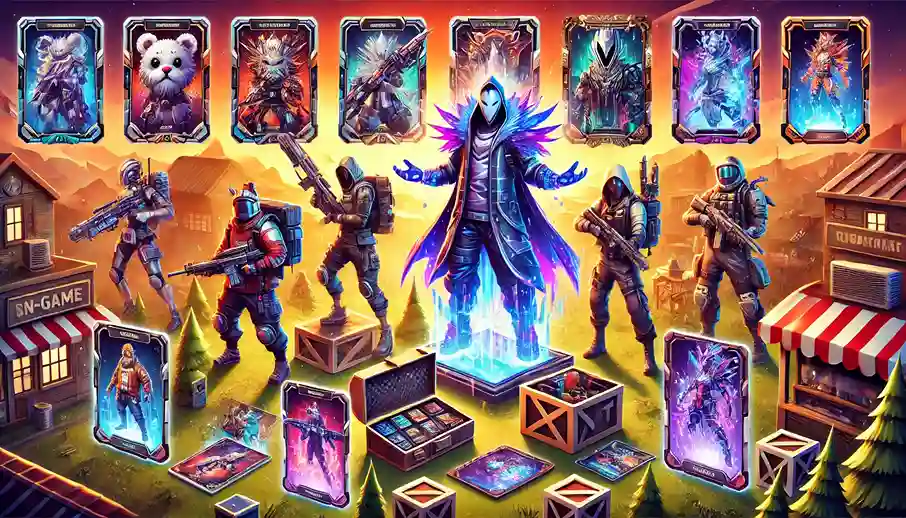
The rise of P2E games allows users to earn through gameplay. For example, players in Axie Infinity earned NFTs valued at an average of $45.68 as of 2022, showcasing the financial potential behind NFT gaming.
NFT Gaming Platforms: The Backbone of Blockchain Gaming
Developing an NFT gaming platform involves creating a secure, scalable ecosystem that supports blockchain transactions. Key components include:
- Blockchain integration: Establishes the economy of the game.
- Smart contracts: Automate transactions and in-game rules.
- NFT management: Tools to mint and track assets.
- User interface: A seamless and engaging experience for players.
Creating a platform that handles high transaction volumes securely is critical. The right development partner can ensure your game has a robust foundation. It must handle complex transactions, ensure fairness, and offer a smooth experience. Partnering with experienced NFT game developers can help achieve this.
P2E Game Development: Key Factors
Building a P2E game requires balancing engaging gameplay with a well-designed economy. Consider these essential factors:
- Game design: Create mechanics that keep players invested.
- Tokenomics: Design an in-game economy that supports long-term growth.
- NFT integration: Offer unique, tradeable assets that provide value.
- Security: Protect player data and assets from hacks and breaches.
Combining traditional game design with blockchain expertise is crucial for a successful P2E game.
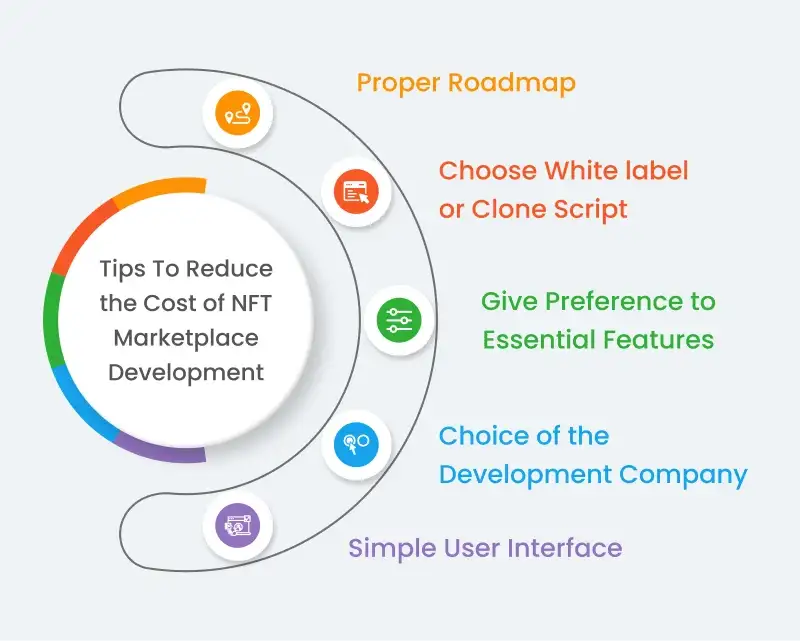
NFT Game Development Services: Why Choose Experts?
Hiring experienced NFT game development services can fast-track your project. These teams can handle:
- Concept development and game design
- Smart contract creation and auditing
- NFT minting and marketplace integration
- User interface and experience design (UI & UX)
- Backend infrastructure and scalability
By leveraging expert services, you avoid common pitfalls and speed up development, allowing you to focus on creating a game that stands out in a competitive market.
Top NFT Game Development Companies
When it comes to creating successful NFT game development and P2E game development projects, partnering with experienced developers is key. Companies like Inoru, AppDupe, ChainSafe, Zynga, Dapper Labs, and Spielworks specialize in offering NFT game development services, including blockchain integration, NFT minting, smart contract development, and marketplace integration.
These firms help streamline the development process while ensuring your game is built on a solid foundation. Their expertise spans from simple NFT-based games to complex Play-to-Earn platforms, offering end-to-end solutions to bring your vision to life.
Breaking Down NFT Game Development Costs
The cost of developing an NFT game varies significantly based on its complexity. Here’s a breakdown of typical costs:
- Simple games: $30,000 – $50,000
- Mid-range games: $75,000 – $200,000
- AAA-style complex games: $300,000 – $1,000,000+
A moderately complex game requiring around 1,000 hours of development might cost $57,000 to $114,000. As of 2022, the estimated cost for developing a simple NFT game ranges between $50,000 – $100,000, while AAA-style games exceed $300,000.
Key Factors Influencing Costs:
- Game complexity: More features and mechanics increase costs.
- Blockchain integration: Specialized expertise is needed to integrate NFTs.
- Art and asset creation: High-quality visuals impact the budget.
- Platform selection: Developing for multiple platforms adds to costs.
- Team expertise: Skilled professionals may charge more but deliver a higher-quality product.
- Development time: Longer projects naturally cost more.
When calculating NFT game development cost, the main factors include game design and concept development, blockchain integration and smart contracts, and art and asset creation. Core development involves programming and UI/UX, followed by NFT marketplace integration. Additionally, testing and quality assurance are crucial, along with marketing and community building to ensure a successful launch. Each of these elements affects the total nft game development cost based on the project’s complexity.
Best Practices for Efficient NFT Game Development
Efficient NFT game development doesn’t have to break the bank. These strategies can help you control costs:
- Start small: Begin with a simple concept and expand it as your game gains traction.
- Leverage existing frameworks: Use proven tools and technologies instead of building from scratch.
- Focus on unique features: Prioritize what makes your game stand out.
- Gather community feedback: Involve your players early to guide development.
- Plan for scalability: Design your game to grow as your user base expands.
By starting with a core idea and scaling up, you can minimize upfront costs and still create a strong foundation for your game.
The Future of NFT Gaming
The NFT gaming industry continues to evolve rapidly. Some trends that will shape its future include:
- Cross-game asset compatibility: Allowing assets to be used across multiple games.
- Improved onboarding for non-crypto users: Making it easier for new users to enter the space.
- Virtual and augmented reality integration: Adding immersive experiences to NFT games.
- More advanced economic models: Sophisticated in-game economies.
- Sustainability and energy efficiency: Reducing the environmental impact of blockchain technology.
The number of NFT users is expected to grow from 10.3 million in 2022 to 19.31 million by 2027. As technology matures, we’ll see more engaging, innovative NFT games hit the market.
Conclusion: Your Path to NFT Game Development
NFT game development offers exciting opportunities for creators and players alike. With the market expected to grow to $6.32 billion by 2031, now is the perfect time to enter the P2E gaming space.
Success lies in balancing creativity with economic principles. By leveraging NFT development services and following best practices, you can build a game that’s both fun and financially rewarding. Ready to create the next big hit in blockchain gaming in the 2025?
NFT game development involves creating video games where players own unique digital assets (NFTs) that can be bought, sold, or traded using blockchain technology. These games often follow a Play-to-Earn (P2E) model, allowing players to earn rewards through gameplay.
To create an NFT game, you need to design engaging gameplay, integrate blockchain for asset ownership, develop smart contracts for NFT transactions, and build a secure marketplace for trading NFTs. Partnering with NFT game development companies can streamline this process.
The cost of developing an NFT game can range from $30,000 for simple games to $1,000,000+ for complex, AAA-style games. The exact cost depends on game complexity, blockchain integration, and features like NFT marketplace development.

